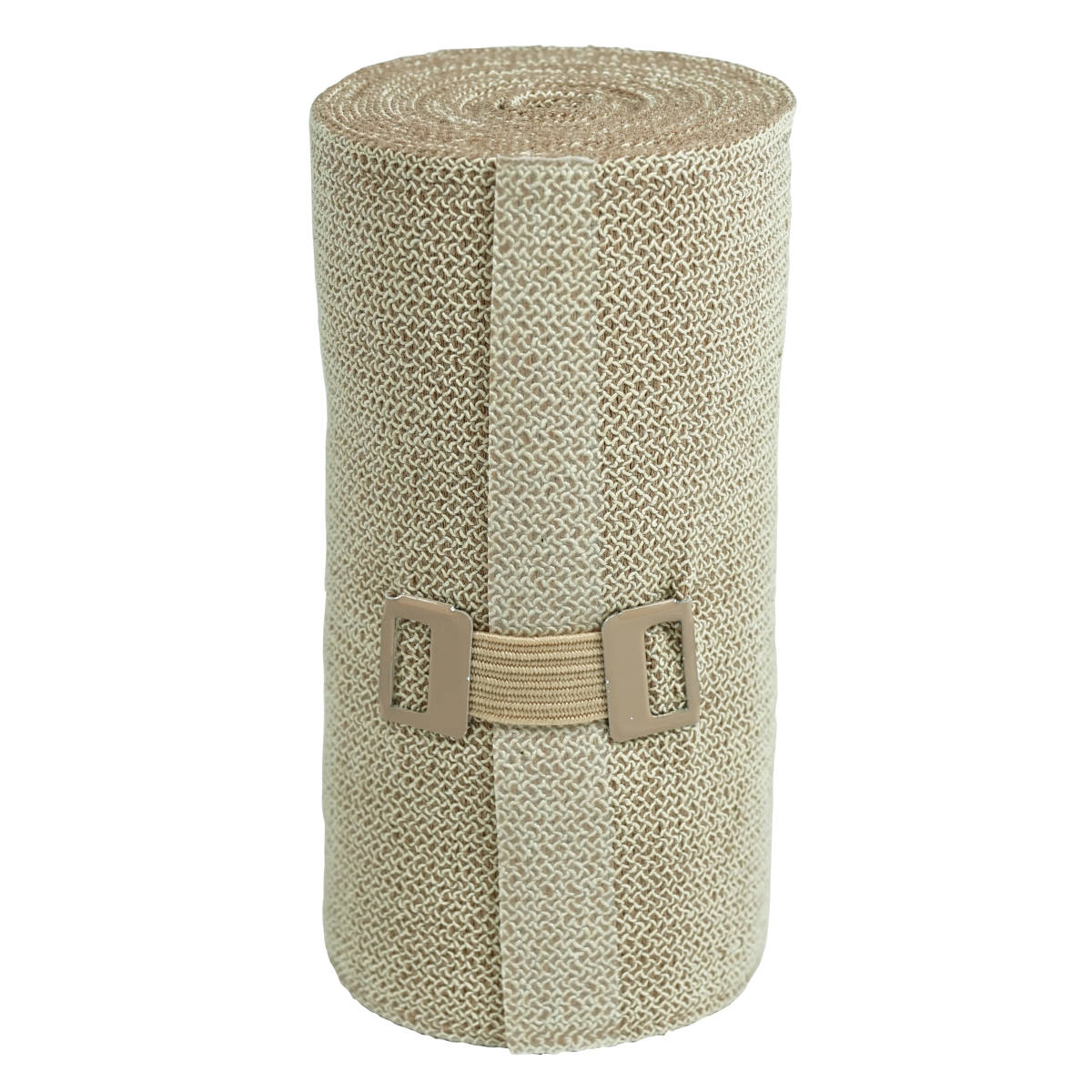Klinidur Textelast Compression Bandage
About Klinidur Textelast Compression Bandage
Klinidur Textelast is a lengthwise elasticated, heavy quality, beige colored, short stretch compression bandage. It is made of 100% cotton; breathable, resistant to perspiration and permeable to x-rays.
This short-stretch bandage is especially suitable for ambulatory compression therapy. The aim of this is to reduce and/or prevent edema, whether or not in combination with an ulcus cruris. The ambulatory compression therapy ensures a high working pressure and a low resting pressure on the lower leg; the bandage can therefore be left in place overnight. Of great importance in this therapy is that the patient continues to walk. The therapy is applied with two Klinidur Textelast bandages, which are applied to the lower leg in opposite directions.
Product benefits
- 100% cotton
- Breathable
- Durable
- Resistant to perspiration
- Permeable to x-rays
Indications
Suitable for giving ambulant compression therapy to patients with vascular diseases, to reduce oedema.
Contra-indications
- Do not apply directly onto open wounds.
- Do not use directly on damaged skin.
- Do not apply the bandage too tightly, as this can have a negative impact on blood circulation.
- Please wash with similar colours, airdry flat.
- Bandage clips are not intended to be applied on patients.
Application instructions
The compression therapy showed in the pictures requires two short stretch bandages that are applied to the lower leg in opposite directions. Using one bandage is possible, depending on local protocol. Use a circular bandaging technique. The bandaging method described below involves winding around the leg.- Select the correct bandage width, based on the diameter of the leg which is to be bandaged.
- Product length is based on fully stretched bandage.
- The foot should generally be kept at a 90° angle with respect to the leg.
- Always bandage around the heel; there should not be any openings around the heel.
- Ensure the leg is sufficiently padded to prevent blisters, weals and pressure points.
- When bandaging, keep the bandage stretched and the roll short.
- Secure the bandage with an adhesive plaster.
- Start with the first Klinidur® Textelast bandage at the big toe and bring this over the top of the foot towards the little toe.
- Then bring the bandage once over the middle of the foot thereby securing the bandage.
- Now bandage towards the middle of the heel whereby the bandage is turned for two-thirds around the side of the heel and one-third underneath it.
- Then bandage the still exposed part of the foot with one single turn.
- Next, apply the bandage in one turn horizontally above the ankle and then carry on bandaging around the leg to just under the knee.
- Just under the knee-cap make one singular turn with the bandage and then bandage down the leg covering any exposed parts.
- Finally, bandage upwards again. Secure the bandage with two pieces of adhesive plaster.
- If you use the two-bandage technique: repeat step 1-7 with the second Klinidur Textelast short stretch bandage, but in the opposite direction. Start bandaging at the little toe and work in the direction of the big toe.

